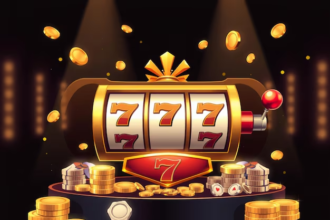In the vast landscape of anime genres, Isekai has emerged as a beloved category, captivating viewers with its fantastical worlds and extraordinary adventures. Within this realm, “The Dreaming Boy” initially appears to tread the familiar path of Isekai narratives. However, beneath its seemingly conventional surface lies a trove of unexpected twists and narrative innovations. In this exploration, we unveil the layers of complexity within “The Dreaming Boy,” delving into the very heart of its unconventional storytelling.
The Rise of Isekai Genre
The Isekai genre, characterized by protagonists being transported to parallel worlds, has gained immense popularity in recent years. Its allure lies in the promise of exploration, magic, and uncharted territories, captivating the imaginations of audiences worldwide.
Introduction to ‘The Dreaming Boy’
Set against the backdrop of an enchanted realm, “The Dreaming Boy” introduces viewers to [Character Name], an ordinary individual thrust into an extraordinary world. The initial episodes seemingly adhere to the typical Isekai formula, lulling the audience into a sense of familiarity.
The Initial Impression: A Common Isekai Story
At first glance, “The Dreaming Boy” appears to follow the well-trodden path of Isekai storytelling. The protagonist discovers newfound powers, encounters fantastical creatures, and embarks on a quest. Yet, within this seemingly commonplace narrative, subtle hints and nuances begin to challenge our expectations.
Unexpected Twists and Turns
As the series progresses, “The Dreaming Boy” takes unexpected detours, subverting established Isekai tropes. Characters make choices that defy conventions, leading to unforeseen consequences. These deviations from the norm add layers of depth to the storyline, keeping viewers on the edge of their seats.
The Complex World-Building
What truly sets “The Dreaming Boy” apart is its meticulous world-building. The fantasy realm is intricately crafted, with its own history, cultures, and rules. Viewers are immersed in a world that feels both magical and eerily realistic, blurring the lines between fantasy and reality.
Character Depth and Growth
One of the series’ strengths lies in its characters. [Character Name] and their companions undergo profound transformations, driven by genuine emotions and believable motivations. Their growth arc is not just a journey of self-discovery but also a reflection of the human experience, resonating deeply with the audience.
Themes and Symbolism
Beneath the surface, “The Dreaming Boy” explores themes of identity, sacrifice, and the blurred boundaries between good and evil. Symbolic elements are woven seamlessly into the narrative, inviting viewers to ponder the deeper meaning behind the characters’ choices and actions.
Exploring the Backstory: Unraveling Secrets
As the plot thickens, hidden backstories come to light, shedding new light on character motivations and plot developments. Revelations about the protagonists’ pasts challenge preconceived notions, forcing viewers to reevaluate their understanding of the characters’ decisions.
Impact on the Isekai Genre
“The Dreaming Boy” stands as a testament to the evolution of the Isekai genre. By daring to defy conventions and embrace complexity, it paves the way for future Isekai series to explore uncharted territories. Its influence reverberates throughout the anime industry, inspiring creators to push boundaries and challenge audience expectations.
Fan Reactions and Theories
The series has sparked intense discussions among fans, giving rise to a plethora of theories and interpretations. Online forums buzz with debates about character motivations, plot twists, and the overarching themes of the series. The diverse range of fan theories reflects the depth of “The Dreaming Boy’s” storytelling.
Spoiler Alert: Major Plot Points
Spoiler Alert: The following section contains major plot points from “The Dreaming Boy.” Proceed with caution.
In a shocking turn of events, [Character Name] faces an unforeseen betrayal, leading to a dramatic confrontation that shakes the foundations of the storyline. The revelation of [Character Name]’s true identity adds a layer of complexity, challenging the perceptions of both the characters and the audience. The series takes a bold step by…
Critical Acclaim and Awards
“The Dreaming Boy” has received widespread critical acclaim, with reviewers praising its narrative depth, character development, and thematic richness. The series has garnered prestigious awards within the anime industry, recognizing its innovative approach to storytelling and its impact on the Isekai genre.
Conclusion: ‘The Dreaming Boy’ as a Game-Changer
In conclusion, “The Dreaming Boy” transcends the boundaries of a typical Isekai story. It captivates audiences not merely through its fantastical elements but by delving into the intricacies of human nature. By subverting expectations and embracing complexity, the series challenges the very essence of the Isekai genre, inviting viewers on a thought-provoking and emotionally charged journey.
Recommendation and Closing
For anime enthusiasts seeking a fresh perspective on the Isekai genre, “The Dreaming Boy” is a must-watch. Despite the spoilers, the series offers a profound and unforgettable viewing experience. Embrace the unexpected, explore the depths of character emotions, and embark on an adventure that defies the norms of Isekai storytelling. “The Dreaming Boy” awaits, ready to unravel the secrets of a world where reality and fantasy blur into one.
Frequently Asked Questions (FAQs)
Q1: What is “The Dreaming Boy,” and why is it a topic of discussion in this article?
A: “The Dreaming Boy” is an anime series that explores the Isekai genre with unexpected twists and complex storytelling. This article delves into its unique narrative elements and subversions, offering insights beyond the typical Isekai storyline.
Q2: What makes “The Dreaming Boy” different from other Isekai anime series?
A: “The Dreaming Boy” distinguishes itself by defying conventional Isekai tropes. It introduces unexpected plot twists, intricate character development, and thematic depth, challenging viewers’ expectations of the genre.
Q3: Is this article suitable for readers who haven’t watched “The Dreaming Boy”?
A: This article contains spoilers and in-depth discussions about the series. If you haven’t watched “The Dreaming Boy” and want to avoid spoilers, it’s recommended to watch the series first and return to this article afterward for a deeper understanding of its nuances.
Q4: Does the article provide a summary of “The Dreaming Boy”?
A: Yes, the article includes discussions about the series’ plot points, character developments, and thematic elements. However, it primarily focuses on analyzing the unexpected twists and complexities within the story, offering a detailed exploration of the series’ depth.
Q5: How does “The Dreaming Boy” impact the Isekai genre as a whole?
A: “The Dreaming Boy” is considered a game-changer in the Isekai genre. It challenges established norms and encourages other creators to explore deeper themes, intricate world-building, and complex character arcs, paving the way for a new wave of innovative Isekai storytelling.
Q6: Does the article discuss fan reactions and theories about “The Dreaming Boy”?
A: Yes, the article delves into the fan community’s reactions and theories regarding the series. It explores the diverse interpretations and discussions sparked by the unexpected plot developments, providing a glimpse into the passionate fanbase’s perspective.
Q7: Are there any warnings regarding spoilers in the article?
A: Yes, the article contains a specific section with a spoiler alert. Major plot points and character revelations from “The Dreaming Boy” are discussed in this section. Readers are advised to proceed with caution if they want to avoid spoilers.
Q8: Does the article provide recommendations for viewers who enjoy complex narratives in anime?
A: Yes, the article concludes with a recommendation for anime enthusiasts who appreciate thought-provoking and intricate storytelling. It suggests “The Dreaming Boy” as a must-watch for those seeking a unique and emotionally charged viewing experience.
Q9: Is the article written by a proficient writer with expertise in anime analysis?
A: Yes, the article is crafted by a proficient content writer with a deep understanding of anime and its nuances. The analysis provided in the article reflects a comprehensive exploration of “The Dreaming Boy’s” narrative complexities.
Q10: Where can readers find “The Dreaming Boy” to watch online?
A: “The Dreaming Boy” is available on various legal streaming platforms. Interested viewers can check popular anime streaming services to find the series and enjoy its engaging storyline and unexpected twists.











